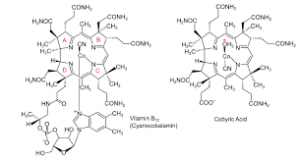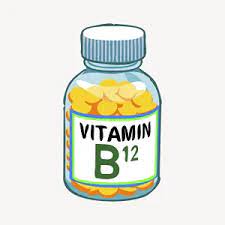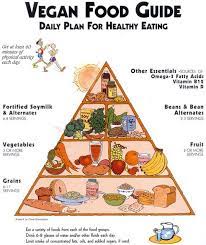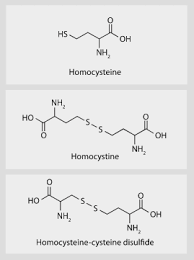Vitamin B12 Vital For Maintain Brain Volume And Health

The Importance of B12 for Energy and Health
Vitamin B12 is one of many essential and vital nutrients the body uses to foster optimal health. Vitamin B12 is a vitamin that encourages the peak function of blood cells while also maintaining the health of the nerves.
The vitamin also has another function central to human life: it is one of the necessary materials for constructing DNA molecules, which store all of the data that contribute to human development.
This nutrient also helps keep the body energized and strong, and Vitamin B12 Deficiency can lead to a condition known as Megaloblastic Anemia.
How Does the Body Absorb B12?
Vitamin B12 is drawn directly from the food that we eat. It is absorbed through a relatively simple process. The first step takes place within the stomach.
The stomach contains powerful hydrochloric acid, which can break down the foods we eat and render them into simpler parts.
When consumed as part of a meal, Vitamin B12 is connected to proteins in the food we eat, and hydrochloric acid breaks the bonds that connect Vitamin B12 to the protein. After the Vitamin B12 Molecule has been freed, it reacts with another molecule known as the Intrinsic Factor.
The intrinsic Factor is a protein that bonds with B12, allowing the nutrient to be taken in by the body. Some people cannot actually make the Intrinsic Factor, which causes them to absorb deficient levels of B12. This condition is known as Pernicious Anemia.
How Much B12 Does the Body Need?
The human body requires Vitamin B12 at all stages of life, but the requirements vary dependent upon age. Children need an amount that slowly grows from 0.4 micrograms in the first six months of life to 1.8 micrograms per day at 13 years.
From 14 years old through adulthood, the body has a relatively steady requirement for B12, around 2.4 micrograms.
Pregnant women need a little more to promote healthy fetal development, around 2.6 micrograms. Women that are breastfeeding need the highest levels, around 2.8 micrograms.
This makes sense because early in life, the child is entirely dependent upon breast milk for nutrition, so the mother must increase her own production to compensate.
What Are the Best Sources of Vitamin B12?
Vitamin B12 is one of a number of nutrients that are only available to human beings through either animal or synthetic sources. Below are a number of sources of Vitamin B12:
Milk Products
Eggs
Poultry
Meat
Fish
Some Yeast Products
Supplements
Fortified Cereals
Other Fortified Foods
Clams
Liver
The final two suggestions, Liver and Clams, contain the most significant levels of B12. The liver processes B12 in animals that cannot produce it naturally, and it is synthesized in herbivores that do have the capability to make their own Vitamin B12 from plant material.
As a result, aside from clams, liver is the single best source of Vitamin B12.
What is Vitamin B12 Deficiency?
A deficiency of Vitamin B12 brings about a rather particular set of symptoms, among which are:
Physical Symptoms of B12 Deficiency
Weight Loss
Appetite Suppression
Constipation
Weakness
Fatigue
Megaloblastic Anemia
Neurological Symptoms of B12 Deficiency
Tingling and Numbness in the Feet and Hands
Soreness of the Tongue or Mouth
Cognitive Decline
Dementia
Confusion
Depression
Balance Issues
It should be noted right away that a deficiency in Vitamin B12 can cause neurological symptoms, even if the physical symptoms do not manifest themselves. Some of the neurological damage resulting from B12 Deficiency is also irreversible, so it is imperative to diagnose and treat Vitamin B12  Deficiency as soon as possible.
Deficiency as soon as possible.
Although the overall need for B12 is lower for children than adults, severe issues can occur due to prolonged Vitamin B12 Deficiency early in life. B12 Deficiency can cause many problems for infant patients.
The Symptoms of Childhood B12 Deficiency include:
Megaloblastic Anemia
Slow Development
Disorders of Movement
General Failure to Thrive
If you notice any of these symptoms, you must make an appointment with a pediatrician as soon as possible. Vitamin B12 deficiency symptoms share similarities with other developmental disorders, and it is vital to get an appropriate diagnosis as soon as possible.
How is Vitamin B12 Deficiency Cured?
Generally, the way to resolve B12 Deficiency is through direct intervention with Injections of Vitamin B12. B12 Injections allow for maximum absorption because B12 is delivered directly to the body, bypassing more limited digestive absorption.
If an immediate injection is not deemed necessary, a physician may recommend taking Vitamin B12 Orally in high doses to resolve the Deficiency.
One study compared the effectiveness of Oral B12 versus B12 Injections. Researchers found that oral Vitamin B12 could replicate the effectiveness of injections over time.
The optimal way to restore B12 through oral supplementation was to initially take high doses of B12 (2000 micrograms) every day, then cut the dose in half.
After cutting down to half doses, it was eventually possible to cut down to weekly, and finally monthly, doses before simply allowing the patient to take steps to maintain healthy levels of Vitamin B12 proactively.
Although both forms of supplementation are effective, the ability of the patient to absorb the nutrient through the digestive tract and the severity of the deficiency will be the most significant factors which lead the physician to take the appropriate course of action.
How are B12 Shots Injected?
Like Testosterone Injections, B12 Injections are Delivered Intramuscularly.
How are Vitamin B12 and Folic Acid Connected?
Individuals that consume a high level of Folic Acid in their diet can make the dangerous symptoms of severe Vitamin B12 Deficiency less apparent. Folic acid can resolve Megaoloblastic Anemia without resolving the underlying neurological complications of the condition.
 Even studies provide evidence that high folate levels in the bloodstream can eventually make anemia worse and amplify the neurological issues related to B12 Deficiency, increasing the risk of cognitive decline.
Even studies provide evidence that high folate levels in the bloodstream can eventually make anemia worse and amplify the neurological issues related to B12 Deficiency, increasing the risk of cognitive decline.
This combination of Folic Acid Overload and B12 Deficiency can lead to permanent nerve damage. Because of this significant risk, healthy men and women should take no more than 1,000 micrograms of Folic Acid daily.
Who is at Greatest Risk of B12 Deficiency?
There are a number of issues that can lead directly to Vitamin B12 Deficiency. These causes include:
Pernicious Anemia
Lack of B12 in the diet
Inability to appropriately absorb B12
Post-surgical inability to properly absorb Vitamin B12
Although these are the four leading causes of Vitamin B12 Deficiency, there are many cases in which the cause of B12 Deficiency is unclear.
Who is Most at Risk of B12 Deficiency?
Aging Adults
As men and women grow older, the odds of developing Vitamin B12 Deficiency grow. There is a condition known as Atrophic Gastritis, which causes the stomach to produce abnormally low levels of Hydrochloric Acid. As a direct result of this, B12 Absorption drops.
This condition affects ten to thirty percent of older men and women. This change in hydrochloric acid production can also change the composition of gut flora, leading to the formation of bacteria that consume Vitamin B12 to propagate, reducing the amount available to the body itself.
Because this disorder reduces the body's ability to break down food sources of Vitamin B12, it can be easily treated through direct supplementation. In addition, foods fortified with B12 are a helpful source because the synthetic form of B12 present in most fortified foods is easier to absorb than natural B12 for these individuals.
Because of the risk of Atrophic Gastritis, physicians recommend getting B12 from either fortified foods or supplements after age fifty. It should also be noted that elderly men and women with this disorder should intake more Vitamin B12 than Recommended Daily Values.
People with Pernicious Anemia
Pernicious Anemia is a medical issue afflicts between one and two percent of adults over fifty. The main issue with these patients is that they either produce no or little Intrinsic Factor, which is necessary for the digestive system to absorb B12 properly.
The most effective way to treat this medical condition is through the use of Vitamin B12 Injections. Injections bypass the need for the Intrinsic Factor and supply usable Vitamin B12 directly to the body.
It may also be possible for some patients to use high doses of oral B12 instead of Vitamin B12 because around one percent of orally ingested Vitamin B12 can be absorbed even without the agency of the Intrinsic Factor.
People with General Gastrointestinal Problems
Small intestine and stomach diseases complicate Vitamin B12 Absorption, including Crohn's Disease and Celiac Disease. These complications can prevent patients from getting the Vitamin B12 they need from a regular diet.
Because of this inherent deficiency, some individuals with diseases such as these can experience very subtly decreased cognitive ability due to childhood Vitamin B12 Deficiency. In addition to this, they can also eventually suffer from dementia or Megaloblastic Anemia.
For this reason, it is undeniably crucial for anyone with gastrointestinal disorders to evaluate their B12 Levels regularly as a preventative measure against these conditions.
People that Have Undergone Surgery of the Stomach or Small Intestine
Certain surgeries can impact the digestive system's ability to absorb healthy levels of Vitamin B12. Individuals who undergo gastric bypass surgery or other weight loss surgeries often find that their ability to absorb Vitamin B12 decreases due to fewer Intrinsic Factors and Hydrochloric Acid released by the stomach.
Surgery that removes part or all of the stomach also leads to this issue. This particularly affects the body's ability to absorb natural forms of B12. Removal of the end of the small intestine, known as the distal ileum, can also inhibit or stop B12 Absorption.
Anyone who goes under the knife for gastrointestinal surgery should be regularly monitored for any nutritional complications.
Vegetarians
Vegans and vegetarians are at a high risk of developing B12 Deficiency if they are not conscientious about their diet. The only natural sources of B12 for humans are derived from animal products. Unless vegetarians look to supplemental sources of B12, it will be impossible to get the necessary Vitamin  B12 for optimal health.
B12 for optimal health.
Vegetarians that still use milk products or eat eggs do not have these same levels of risk, and pescatarians can quickly get the B12 they need from fish sources.
Luckily for vegetarians, there are now a number of fortified sources of B12, the most common of which is contained within many breakfast kinds of cereal.
Lactating and Pregnant Vegetarians, as well as their Infants
During pregnancy, the fetus receives necessary Vitamin B12 through the placenta. After being born, B12 is received through breast milk. If vegetarian mothers breastfeed infants, they often receive abnormally low levels of B12, which can hinder their optimal development.
If B12 Deficiency is not caught very early, it can cause severe and potentially life-long problems.
American Dieticians strongly suggest that both lacto-ovo vegetarians and vegans take ample supplemental B12 during pregnancy to ensure the infant's health. They should also ask their doctors about providing their young children with B12 Supplements to eliminate all potential risks.
Connections Between Vitamin B12 Deficiency and Negative Cardiovascular Outcomes
Heart disease is usually the number one cause of death in first-world countries. In developing countries, the threat of Heart Disease continues to increase as other easily preventable causes of death are eliminated, and changes in diet and lifestyle promote increased odds of the condition. Some significant risk factors for Heart Disease are:
Diabetes
Obesity
Low HDL Cholesterol
High LDL Cholesterol
Hypertension
High Homocysteine Levels
Vitamin B12 and Homocysteine
Homocysteine levels are strongly associated with Vitamin B12 Consumption. Homocysteine is an amino acid compound necessary for a healthy cardiovascular system; the problem is that many individuals produce way too much of it.
Excessively high Homocysteine production causes many issues that reduce the heart's function and increase the risk of heart complications. It encourages the formulation of clots, prevents proper vasodilation, and changes the muscular composition of veins and arteries.
 It also causes the breakdown of fat in the bloodstream, releasing dangerous free radicals into the body.
It also causes the breakdown of fat in the bloodstream, releasing dangerous free radicals into the body.
Vitamin B6, Folate, and Vitamin B12 are vitally important in the metabolism of Homocysteine. As a result of B12 Deficiency, Homocysteine production can rise dangerously.
Vitamin B12 Supplementation in combination with Folate Supplementation has been shown to have an ameliorative effect on Homocysteine Production, encouraging a reduced risk of stroke.
To this point, the evidence is incomplete about whether providing B12 Supplementation improves other aspects of Cardiovascular Health in at-risk patients.
This does not diminish the importance of maintaining healthy B12 consumption throughout the lifespan because, although Vitamin B12 may be limited in its ability to treat heart problems, proper use of B12 throughout the lifespan can help reduce the risk of developing these complications in the first place.
Vitamin B12 and the Brain
B12 May Protect the Brains of the Elderly
In a recent study conducted by scientists at Oxford, a strong correlation was found between the overall volume of the brain and healthy Vitamin B12 consumption. In this study, researchers collected data from 107 participants.
These participants ranged in age from sixty-one to eighty-seven. None of the subjects displayed any signs of cognitive decline or issues with memory. The median age of the subjects was seventy-three, and 46% of the participants were men.
The scientists then proceeded to draw blood to assess the Vitamin B12 levels of each patient. Vitamin B12 is found in the highest concentrations in milk, fish, and meat. In addition to blood testing, each subject also underwent annual MRI brain scans to assess the brain's condition visually. They also received a yearly physical and memory evaluation.
Of the 107 men and women, none were found to have Vitamin B12 Deficiency. Researchers took the data they compiled from this study and compared it to studies of patients who suffered from Vitamin B12 Deficiency. They discovered that men and women with Vitamin B12 Deficiency were six times more likely to have smaller brain volumes than patients with healthy levels of B12.
Although they could establish this link, the scientists could not provide evidence regarding the impact of brain size on cognitive impairment.
Maintaining Healthy Vitamin B12 Levels Helps Prevent Cognitive Issues Later in Life
The project leader, Anna Vogiatzoglou, explains that there are a lot of different factors which contribute to adverse changes in the condition of the brain. Still, her study shows a powerful connection between Vitamin B12 and preserving the size of our brains.
Although her study could not establish psychological and cognitive changes related to changes in brain size with age, she hypothesizes that ensuring that we get enough Vitamin B12 throughout our lives is a thoughtful and productive step in preserving proper and healthy brain function later in life.
By taking this healthy and conscientious step, there is a significant chance that we can preserve our memory more effectively with age.
Although the study provides a positive link between Vitamin B12 Levels and Brain Shrinkage, the study did not analyze the effect of Vitamin B12 Supplementation as a preventative treatment for elderly patients.
It appears that, like the connection between Cardiovascular Health and Vitamin B12, there is a limited ability for Vitamin B12 to be a treatment for conditions related to untreated Vitamin B12 Deficiency, but maintaining healthy Vitamin B12 Levels throughout the lifespan can help prevent significant issues later in life.
Does Excessive B12 Supplementation Lead to any Health Risks?
Vitamin B12 has a meager capacity for toxicity. Because of this, there is little to no risk of complications resulting from the over-consumption of the nutrient.
Vitamin B12 is water-soluble, and nutrients of this type are generally absorbed by the body as needed, then released into the urine. Fat-soluble Vitamins generally carry a particular risk of overdose (Vitamin A is one example).
Vitamin B12 Final Thoughts
As you can see, it is vital to ensure that your body gets a healthy dose of Vitamin B12. If you are conscientious, this is one of the best ways to preserve your cognitive health deep into old age.
There is no reason to experience Vitamin B12 Deficiency unless your body begins to have trouble processing the nutrient. If you have a feeling you aren't getting enough Vitamin B12 in your diet, we actively encourage you to seek out a supplement.
There is absolutely no downside; it can positively impact your cardiovascular, neurological, and general energy levels.
- 0001) How to keep your hair shiny and healthy [Last Updated On: February 26th, 2025] [Originally Added On: November 16th, 2022]
- 0002) The Importance of Healthy Hair [Last Updated On: February 15th, 2025] [Originally Added On: February 15th, 2025]
Word Count: 2732






